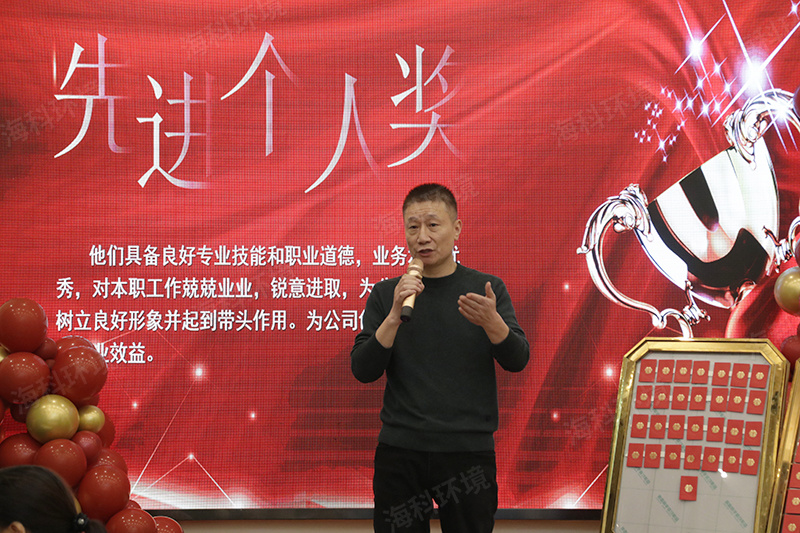ENERGY SAVING AND ENVIRONMENTAL PROTECTION EQUIPMENT AND ENGINEERING GENERAL CONTRACTING
Tel : +86 17305119688
Email :15061619658@139.com
Understanding Industrial Bag Filters: Enhancing Air Quality in Industrial Applications
2025-06-04
Industrial bag filters play a crucial role in the air purification landscape, particularly within industrial environments where dust and particulate matter can pose significant health risks. These filters are designed to capture and remove harmful pollutants from the air, ensuring a safer and healthier workplace. Understanding the functionality and benefits of industrial bag filters is essential f
Industrial bag filters play a crucial role in the air purification landscape, particularly within industrial environments where dust and particulate matter can pose significant health risks. These filters are designed to capture and remove harmful pollutants from the air, ensuring a safer and healthier workplace. Understanding the functionality and benefits of industrial bag filters is essential for any operation aiming to maintain compliance and enhance performance.
At the core of an industrial bag filter system is the bag itself, typically constructed from a variety of materials suited to different applications. These materials may include polyester, polypropylene, or specialized compounds that can withstand high temperatures or chemical exposure. The choice of material directly influences the filter's efficiency, lifespan, and suitability for specific types of dust or particles.
One of the primary advantages of using industrial bag filters is their high filtration efficiency. They can capture particles as small as 1 micron, which is crucial for industries such as pharmaceuticals, food processing, and manufacturing, where even minor contamination can lead to significant quality control issues. Moreover, the design of these filters allows for a large surface area that maximizes the dust-holding capacity, leading to longer intervals between maintenance and replacement.
Additionally, industrial bag filters contribute to improved indoor air quality. By effectively removing airborne pollutants, they mitigate the risk of respiratory problems among employees and help maintain a healthier work environment. This aspect is not only beneficial for employee well-being but can also enhance overall productivity, as a clean environment often correlates with improved focus and efficiency.
Another consideration when selecting industrial bag filters is the filtration system's cleaning mechanism. Many modern systems incorporate pulse-jet cleaning technology that allows for the automatic removal of accumulated dust from the bags, thus maintaining optimal airflow and performance. This feature significantly reduces downtime and operational costs associated with manual cleaning and filter replacement.
Furthermore, integrating industrial bag filters into your air purification system can help achieve regulatory compliance with air quality standards. Many industries are subject to stringent regulations regarding emissions and workplace air quality. Utilizing effective filtration solutions not only ensures adherence to these regulations but also demonstrates a commitment to environmental responsibility.
In conclusion, industrial bag filters are a vital component of effective air purification strategies in industrial settings. Their ability to efficiently capture fine particles, enhance air quality, and comply with environmental standards makes them indispensable. When selecting a bag filter system, it is essential to consider the specific needs of your operation, including the type of contaminants present, the desired air quality standards, and the maintenance protocols for optimal performance. Embracing these advanced filtration solutions can lead to significant long-term benefits for both employees and the environment.
At the core of an industrial bag filter system is the bag itself, typically constructed from a variety of materials suited to different applications. These materials may include polyester, polypropylene, or specialized compounds that can withstand high temperatures or chemical exposure. The choice of material directly influences the filter's efficiency, lifespan, and suitability for specific types of dust or particles.
One of the primary advantages of using industrial bag filters is their high filtration efficiency. They can capture particles as small as 1 micron, which is crucial for industries such as pharmaceuticals, food processing, and manufacturing, where even minor contamination can lead to significant quality control issues. Moreover, the design of these filters allows for a large surface area that maximizes the dust-holding capacity, leading to longer intervals between maintenance and replacement.
Additionally, industrial bag filters contribute to improved indoor air quality. By effectively removing airborne pollutants, they mitigate the risk of respiratory problems among employees and help maintain a healthier work environment. This aspect is not only beneficial for employee well-being but can also enhance overall productivity, as a clean environment often correlates with improved focus and efficiency.
Another consideration when selecting industrial bag filters is the filtration system's cleaning mechanism. Many modern systems incorporate pulse-jet cleaning technology that allows for the automatic removal of accumulated dust from the bags, thus maintaining optimal airflow and performance. This feature significantly reduces downtime and operational costs associated with manual cleaning and filter replacement.
Furthermore, integrating industrial bag filters into your air purification system can help achieve regulatory compliance with air quality standards. Many industries are subject to stringent regulations regarding emissions and workplace air quality. Utilizing effective filtration solutions not only ensures adherence to these regulations but also demonstrates a commitment to environmental responsibility.
In conclusion, industrial bag filters are a vital component of effective air purification strategies in industrial settings. Their ability to efficiently capture fine particles, enhance air quality, and comply with environmental standards makes them indispensable. When selecting a bag filter system, it is essential to consider the specific needs of your operation, including the type of contaminants present, the desired air quality standards, and the maintenance protocols for optimal performance. Embracing these advanced filtration solutions can lead to significant long-term benefits for both employees and the environment.
Industrial bag filter
RELEVANT INFORMATION
The 2023 Annual Meeting of Jiangsu Haike Environmental Technology Engineering Co., Ltd
2024-01-08
The 2023 Annual Meeting of Jiangsu Haike Environmental Technology Engineering Co., Ltd


 English
English Русский
Русский بالعربية
بالعربية

